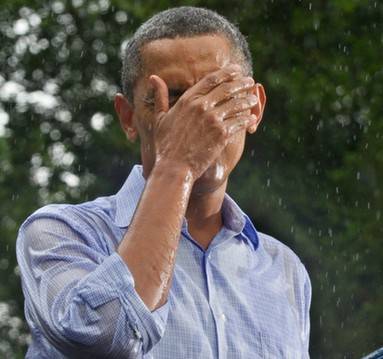国外总统竞选期间,竞争对手之间都会互泼脏水,揭对方的短、爆对方的丑闻,并积极运用媒体平台散播这些信息,以影响对手的支持率。这当中自然会有一部分宣传内容是人工炮制、无中生有的。所以,国外媒体对这一类宣传活动都叫shamcampaign。

Shampaign is a fake, insincere, or misleading campaign, particularly for political office or commercial gain.
Shampaign指虚假的、不诚恳的,或者有误导性质的宣传活动,尤其是以政界职位或商业利益为目的的宣传活动,我们可称之为“虚假宣传”。
The word shampaign is a portmanteau of the words sham and campaign. An online dictionary defines the word sham as "something false or empty that is purported to be genuine" and "one who assumes a false character".
Shampaign一词是sham和campaign两个词的合成形式。在线字典对sham一词的解释为“冒充真货的赝品”和“假冒某个身份的人”。
Shampaigns have become increasingly popular and will continue to do so. As viral marketing becomes mainsteam, we will see more and more shampaigns as this is a technique that creates talk and can successfully carries consumers from one media to another, for example a television commercial to a website. (Source: Word Spy)
虚假宣传越来越普遍,而且这个趋势还将继续。随着病毒营销策略成为主流,我们会看到更多的虚假宣传,因为这种策略能够制造话题然后成功地将消费者从一个媒体转移到另一个媒体平台,比如,从电视广告转移到某个网站。
相关阅读
(中国日报网英语点津 Helen)